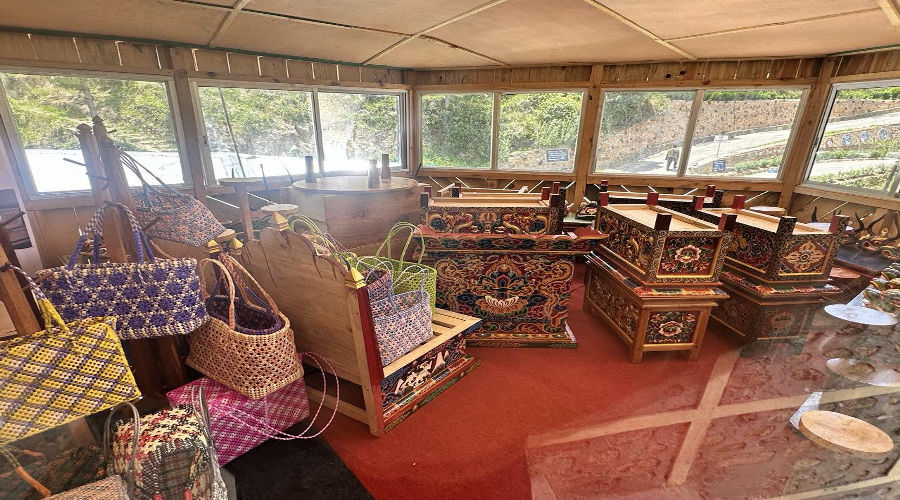 Behind prison walls, where freedom is limited, a quiet transformation is taking place. Inmates once defined by their crimes are now getting a second chance at life. As the 4th Made in Bhutan exhibition and the 2nd Watermelon Festival opened at Thimphu’s Clock Tower Square yesterday, one stall tells a story not of merchandise, but of second chances. For the first time, the exhibition features handcrafted products made by inmates from across the country, reflecting not just skills but stories of transformation.
Behind prison walls, where freedom is limited, a quiet transformation is taking place. Inmates once defined by their crimes are now getting a second chance at life. As the 4th Made in Bhutan exhibition and the 2nd Watermelon Festival opened at Thimphu’s Clock Tower Square yesterday, one stall tells a story not of merchandise, but of second chances. For the first time, the exhibition features handcrafted products made by inmates from across the country, reflecting not just skills but stories of transformation.
Amidst the colourful stalls at the exhibition, one display stands out not just for its craftsmanship, but for the story it tells.
From woodwork to weaving, these handcrafted items are symbols of redemption, made by prisoners who are learning, healing, and hoping for a better tomorrow.
These intricate pieces were crafted within prison walls by hands once defined by crime, now reshaped by purpose.
Today at the exhibition, the products on display include items made by prisoners from across the country, even as far as Lungzor District Prison in Trashigang.
BBS spoke with inmates from the Chamgang Central Prison in Thimphu, who shared that working on these pieces has been life-changing, helping them find purpose and hope for the future.
For many, working on woodcrafts has not only taught them technical skills but also brought them inner peace.
An inmate in his early 30s, currently serving life imprisonment, shared that working with his hands has given his life a sense of purpose and dignity he never thought he would find behind bars
“I had very limited skills in carpentry and painting when I was outside. After my conviction, thanks to His Majesty The King’s benevolence, we received financial support and multiple training opportunities through The Pema Secretariat. It has given us a chance to learn, grow, and make a difference for ourselves and our loved ones.”
Today, he practices carpentry and sends his earnings to support his ageing mother back home.
Similarly, for an inmate who is in his early 50s, being able to continue to work in Shazoor or woodturning after his conviction has been a blessing for both him and his family back home.
Through his work, he has been able to support his family with the earnings he makes inside the prison.
“After imprisonment, life became unbearably difficult. But the prison officials encouraged us to stay productive through training. I was the head of the family. My conviction left them in darkness, without support.”
Likewise, another inmate is using his time in prison to reskill himself.
He had to sell his shop after his conviction. However, by honing his skills within the prison compound, he shared that he is slowly rebuilding his confidence and hopes to restart his business once released.
“Back when I was running my furniture business, I had little to no knowledge about how the furniture was actually made. I only knew how to manage the sales. But after my conviction, I received a lot of training and hands-on experience.”
According to the police, vocational training helps inmates reintegrate into society, promotes decriminalisation, and reduces re-offending.
The Pema Secretariat and Department of Workforce Planning and Skills Development have played an instrumental role in offering this training across prisons.
As the three-day exhibition ends tomorrow, the stall by the Police’s Prison Service Division leaves behind more than handcrafted products, it shares a message of hope, strength and second chances.
Tashi Dekar
Edited by Sonam Pem






